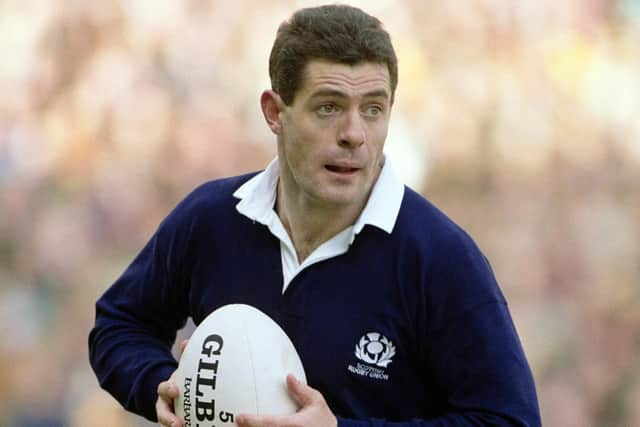How Scotland could have been a Gavin Hastings kick away from playing in the first ever Rugby World Cup final


Of those who may represent Scotland this autumn, only the mighty WP Nel might then have been taking first tottering steps. Gregor Townsend himself was just entering his teens, a braw laddie at Galashiels Academy. Now the older members of the 1987 squad are drawing their pensions.
There was no great enthusiasm for the idea of that first World Cup, certainly not at Murrayfield. The game was still amateur and most of us, as I remember, hoped to keep it that way. This was unrealistic. More and more demands were already being placed on players. Balancing work, family and rugby was becoming more difficult. Professionalism would come after the third World Cup, held in South Africa. Even then my old friend Norman Mair, this paper’s most famous rugby correspondent, hoped that the game might become only semi-pro. Nae chance.
Advertisement
Hide AdAdvertisement
Hide AdAnyway there wasn’t much of a build-up to that first Cup. Some players went off on a holiday tour in Bermuda. It turned out badly. John Rutherford returned hobbling. One warm-up match was played – against Spain. No caps were awarded.
Still interest was soon aroused, partly no doubt because matches from New Zealand could now be televised live in the northern hemisphere. Scotland midway between two Grand Slams had a good team captained by the outstanding Hawick hooker Colin Deans. It had been a mixed 5 Nations: home wins against Ireland and Wales, a narrow defeat in a splendid match in Paris and then a wretched Calcutta Cup against a mediocre England side on a wet day at Twickenham.
The first match was against France and Scotland began in fine style, Derek White scoring a try after Finlay Calder broke from a line-out. Joy was dampened by an injury to Rutherford, cruciate ligament as we learned later. It was the end of his Cup, then very soon the end of his great career. Dougie Wyllie of Stewarts-Melville moved from centre to fly half and 18-year-old Alan Tait from Kelso came on for his first cap. He would become a great player, but was lost to the Union game for seven or eight years. The game went to and fro. Then with Scotland leading 16-14 the French full-back Serge Blanco took a tap penalty and scored under the posts at a time when play seemed to have stopped while an injured player received attention. The conversion made it 20-16 to France, a try being worth only 4 points then. Dramatically in the last minute Roy Laidlaw, breaking blind, put the powerful West of Scotland wing Matt Duncan over in the right hand corner. 20-20. Gavin Hastings missed the conversion.
We then beat Zimbabwe and Romania comfortably in the remaining pool matches, but the draw with France put them first in the pool because they had scored three tries to our two in that game. So we played New Zealand in the quarter-final. We lost 6-30. They scored only two tries, however, their metronomic kicker Grant Fox contributing 22 points. They went on to win the cup by beating France. We were left wondering about Hastings’ missed kick. Converting Duncan’s try would have given us a quarter-final against Fiji who were well beaten by France, who reached the final by beating Australia in Sydney – I’d forgotten till checking on results that Australia were joint-hosts. New Zealand of course won the Cup by beating France in the final, but some of us – me anyway – have never quite got over the thought that we might well have been in France’s position if only Gav had kicked that conversion. It was a difficult one of course...
One dwells, mournfully or sourly, about such things – like dropped catches in cricket and missed penalty goals in football. Utterly futile of course.
No matter. 1987 saw the World Cup properly launched, doubts about the competition dispelled. The second one in 1991 was shared between the four Lions countries with a final at Twickenham. If things went well we would play all our pool games, quarter-final and semi-final at Murrayfield where we had last lost to Australia in November 1988. What could possibly go wrong? (To be continued next week) ...
Comments
Want to join the conversation? Please or to comment on this article.